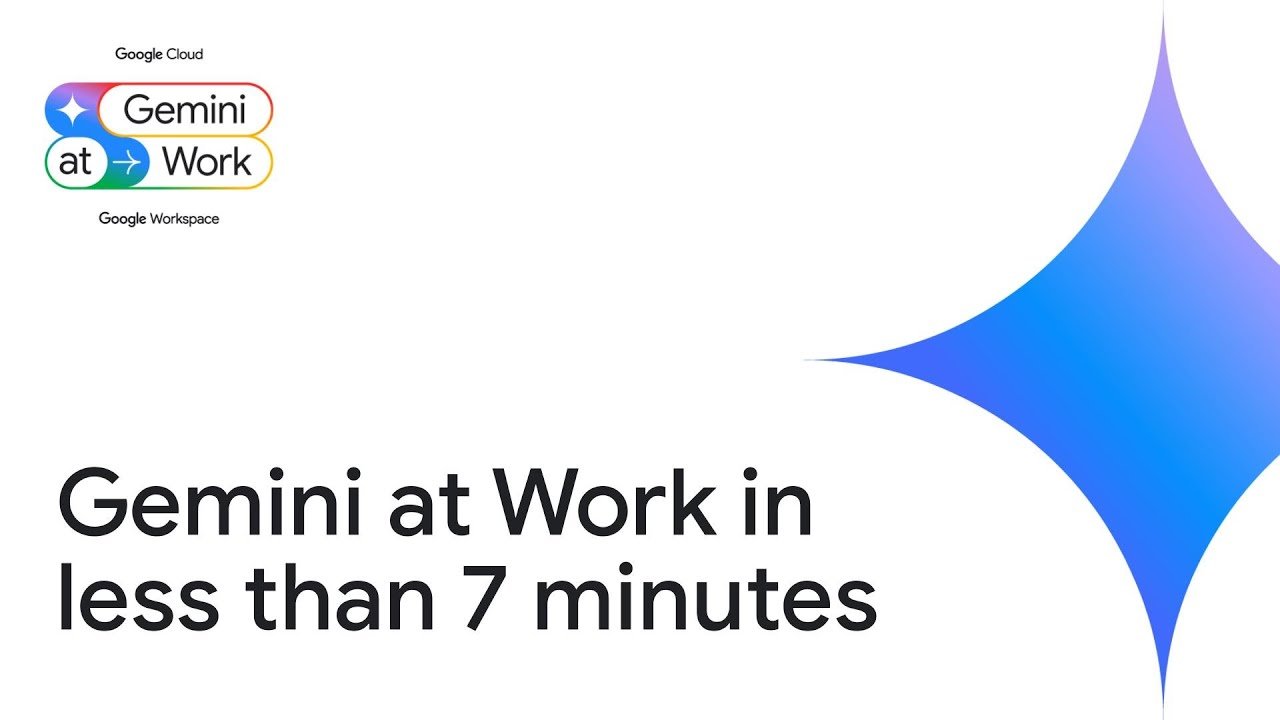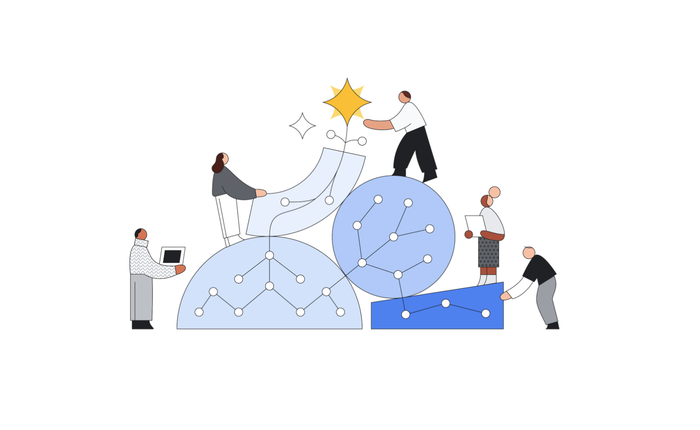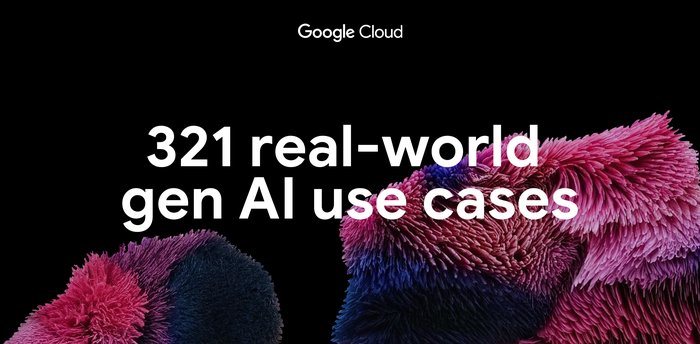Unlocking gen AI success: Five pitfalls every executive should know

Dave Nguyen, Ph.D.
Innovation Program Lead, Google Cloud
Maximizing the potential of gen AI for your business requires navigating potential roadblocks on the road to ROI
The generative AI revolution is exploding. It’s transforming everything from boardrooms to stock markets. Our recent study, The ROI of gen AI, found that “74% of enterprises using gen AI report ROI within the first year, with 86% of those reporting increased revenue noting a 6% or more increase”. This is huge! Yet, many organizations, maybe even some of you, are struggling to turn gen AI ambitions into tangible results. Why?
I’m a long-time innovator and early implementor of gen AI-based solutions with Google Cloud. I’ve worked with several customers building Gemini-powered solutions and helping them transform their organizations to do so. I’ve been ensnared by several pitfalls (sometimes repeatedly, if I’m being honest!) and hope to spare future brilliant ideas from an untimely demise.
In this blog, I’ll share some common pitfalls that I’ve experienced and seen. As I introduce each one, I’ll walk you through how to overcome them by leveraging Google Cloud Consulting’s best practices around prioritization, managing portfolios, measuring potential and risk, creating production at scale, and doing this in a rapidly-changing environment.
Let's dive in:
- The prioritization paradox: Too many ideas, too little time
The sheer volume of potential gen AI applications can stun even the most seasoned experts (See 185 real-world gen AI use cases from the world's leading organizations).
Example: A leading industrial distributor was captivated by gen AI’s potential. They envisioned a future where it transformed everything – personalized customer experiences, optimized inventory management, software development, and beyond. However, even though the possibilities were endless, their resources were finite. And all the possibilities made it difficult for those finite resources to prioritize and focus on making meaningful progress toward value for the enterprise.
Solution: Engineer an organization, culture, and processes that strategically pinpoint the most promising ideas and focus on execution to turn ideas into high-impact gen AI initiatives. (See How to build an effective AI strategy). This supports:
- Strategic consideration to optimize existing processes with gen AI’s capabilities, but also to reinvent them entirely with its disruptive power.
- Comprehensive prioritization demands a more complex, multi-dimensional assessment encompassing data, security, and ethical considerations.
- Measuring gen AI's impact requires nuanced evaluation beyond simple right or wrong, considering its expressive capabilities and potential biases.
2. POC purgatory: Escaping the proof-of-concept trap
Gen AI makes it easy to build impressive proof-of-concepts (POCs). But transitioning to production at scale is where many companies stumble.
Example: A retailer aimed to revolutionize customer support with a gen AI chatbot. The POC was a technical success, helping agents find answers. However, scaling it uncovered overlooked legal challenges. The product manuals and technical guides intended for our knowledge base, while publicly available, required further legal review. Such issues (e.g., ethical considerations, bias, privacy, security, legality) are numerous in gen AI projects and, without careful planning, can significantly impede success. While gen AI proof-of-concepts may succeed, they can also mask complex challenges beyond the technology itself.

Solution: Recognize that scaling gen AI requires more than just technical expertise. Consider:
- Cross-functional collaboration: Gen AI requires heightened involvement beyond your technical team. Promising use cases need plans that identify and engage all extended stakeholders.
- Addressing ethical and legal implications: Proactively establish clear guidelines aligned with the law and your enterprise values. Develop processes for efficient use case reviews. (See: Google Cloud’s perspective on Responsible AI)
- Upskilling and change management: Prepare your workforce for gen AI’s impact on their roles.
3. Infinite possibilities, infinite risks: Taming the unpredictable
Gen AI models like Gemini are powerful, but they can also produce unexpected and undesirable outputs such as hallucinations.
Example: A gen AI travel assistant, designed to inspire travelers and help book flights, surprised its developers by confirming a "flight to the moon" during testing. While this example is clearly impossible, imagine the implications for the company if the mistake was less obvious and only uncovered when the passenger tried to board her flight!
Solution: Adopt a proactive approach to risk management:
- Anticipate unexpected outputs: Gen AI will surprise you. Be prepared for the unexpected.
- Understand and mitigate risks: Identify potential security, ethical, and legal concerns.
- Implement robust testing and monitoring: Develop a gen AI-focused testing approach and continuously evaluate and refine your gen AI solutions.
4. The accelerating pace of change: Staying ahead of the curve
The gen AI landscape is rapidly evolving (See: Our 10 biggest AI moments so far), with new technologies and best practices constantly emerging.
Example: In earlier work, we struggled to integrate multiple data sources and make them accessible to Gemini. After grappling with technical challenges for several weeks, Google released a new Gemini tool called function calling that addresses many of the pain points of data integration. While positive, it meant coping with sunk effort and managing stakeholder expectations surprised by such rapid advancement.
Solution: Embrace agility, resilience, and continuous learning:
- Cultivate a culture of continuous learning: Keep abreast of new tools, techniques, and research.
- Embrace experimentation and iterative development. Be prepared to adapt as the technology evolves. (See: Success through culture: why embracing failure encourages better software delivery)
- Define your North Star. Don't let the allure of new tech features derail your pursuit of value if the value proposition remains intact.
5. Don't forget your data: Unleashing the power of your unique assets
Gen AI’s true power lies in combining it with your proprietary data and insights.
Example: We worked to redefine a customer experience with personalized product recommendations (See: Vertex AI Search). Initially, we focused on tuning pre-built gen AI models to align with the brand voice, largely relying on Gemini’s pre-trained knowledge and user input to make recommendations. In user testing, many users commented they would just rather use outside tools directly. We had learned we needed to bring something unique to the table and that often takes the form of proprietary data and services. In this case, we began integrating user-specific data that only we had access to. This allowed us to create highly personalized recommendations, surfacing items customers might not know they wanted based on past behavior, preferences, and unique needs. It was proprietary data that differentiated our experience.
Solution:
- Identify your unique data assets: What proprietary data gives you a competitive edge?
- Integrate your data with gen AI: Use your data to train and fine-tune models for specific use cases.
- Focus on creating unique value: Develop solutions that leverage your data to deliver personalized and differentiated experiences.
As an AI-first company, Google knows how to run AI models and enable their success within complex organizations. We have learned from our own experience doing this internally for years and with many customers. As part of Google Cloud Consulting, I work with customers across industries to bring the promise of gen AI to life by:
- Developing comprehensive gen AI innovation strategies, aligning technological advancements with core business objectives.
- Designing and building gen AI prototypes and solutions, ranging from targeted enhancements to existing processes to entirely new product offerings, demonstrating the tangible value of gen AI across diverse business applications.
- Supporting organizational transformation for the successful adoption and scaling of gen AI, including the development of new operating models, upskilling initiatives, and governance frameworks to ensure responsible and effective AI integration.
I am so thrilled by the transformative potential of Gen AI. For example, see how Best Buy resolves issues up to 90 seconds faster or how Alaska Airlines enhances the travel experience. However, I've also seen firsthand how great ideas can become unnecessarily trapped, and I'm passionate about ensuring our clients avoid those pitfalls.
Ready to unlock the power of gen AI for your business? Partner with our team at Google Cloud and leverage both our innovation and technical leadership to turn your ambitions into impact. We offer a range of services to support your AI journey. Learn more here.



